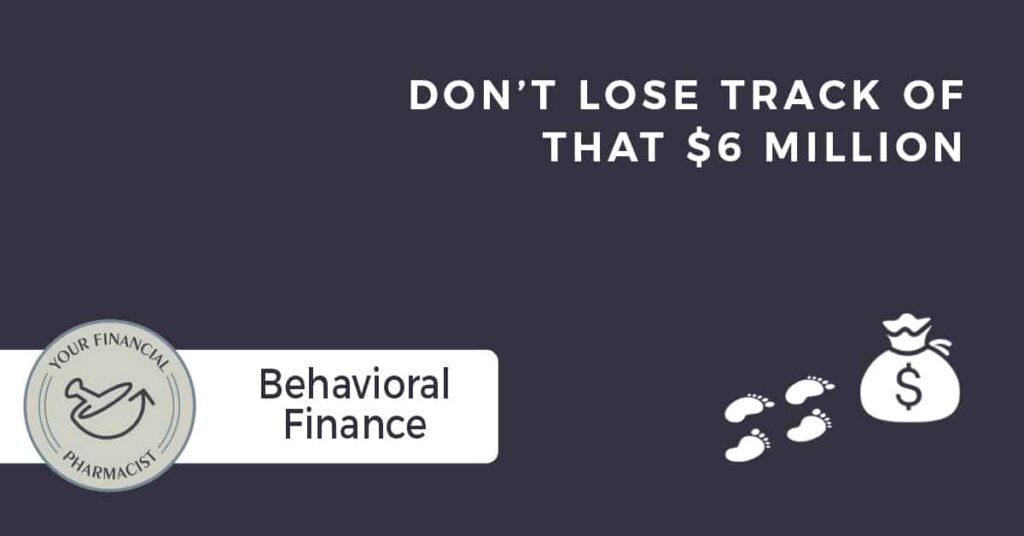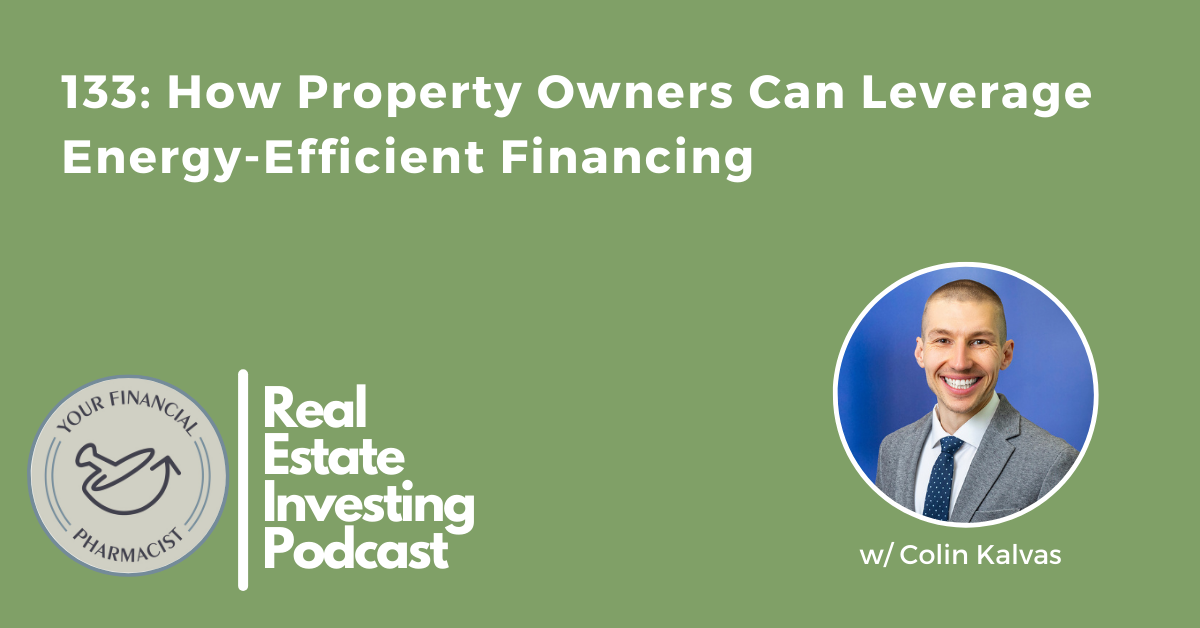This spring, over 14,000 pharmacy students were awarded a Doctor of Pharmacy degree. Those graduates (except for those entering residency training) will be making approximately $120,000 per year depending on where they live and the type of practice they choose. Assuming most of these individuals will work 40 years with an average raise/cost of living adjustments of 3% per year, they will earn approximately $9 million during their career as a pharmacist.
If we assume 30% of that income (after deductions and credits) goes to Uncle Sam for federal income taxes, state income taxes and FICA and another 5% goes into a 401(k) or other employer sponsored retirement plan, approximately $6 million will make its way into the bank accounts of those pharmacists during their career.
Whoa.
That’s worth saying again. Recent pharmacy graduates will have approximately $6 million showing up in their bank accounts when it is all said and done. Remember, this assumes one household income, cost of living adjustments that only match inflation rates, and a career that lasts only 40 years.
What about for you? This total amount could be more or less depending on when you started working, how many years you work before retiring and how your salary changes throughout your career. Regardless of any one of those factors, it will still be a lot of money earned throughout your career.
That, of course, is the good news. Pharmacists have a great income to work with and if managed wisely, it should be way more than enough.
So what’s the bad news?
As we all know, when it comes to our finances, it is easy to go month after month without thinking much about the bigger picture. Over the past year, I’ve talked to way too many pharmacists that describe the feeling of living paycheck to paycheck despite making a six-figure income.
It doesn’t have to be this way. In fact, it shouldn’t be this way.
Why is this the case for so many pharmacists? Often, it is a result of not having a plan in place to direct where that money is going each and every month. How do I know? That is exactly how my Jess and I felt during our journey to pay off $200k in debt. We felt like we were living paycheck to paycheck (money in, money out) and doing that month after month soon become year after year (thankfully only a couple!) before we got serious about directing where our money was going. The reality was that we thought we had it all under control but in fact did not. After all, we didn’t rack up any credit card debt, we bought a reasonable home that was well under what the bank suggested we could afford and lived a pretty modest lifestyle. However, we didn’t have a plan in place that was directing where our money was going and a combination of expenses that weren’t in check quickly sucked up our income.
As we got serious about getting out of debt, we quickly realized that living intentionally with a plan that we were directing rather than doing a ‘good job’ and not overspending our income was two very different things.
It doesn’t matter if you make $50,000, $150,000 or $250,000 per year, without a plan expenses typically creep up and money comes in and out each month without much thought and direction.
What if instead you took a step back and asked yourself these three questions?
- Do I have a good plan and system in place to wisely manage this $6 million that will be afforded to me throughout my career?
- Have I set short and long term financial goals?
- Does my monthly spending reflect my financial goals?
Don’t Let the Big Income Fool You
I’ve made my fair share of financial mistakes and many can be linked back to the complacency that comes along with a good income that can fool you if you aren’t careful. We all have had those months of falling off the wagon and not being intentional about directing where our money is going but we cannot let that be a trend over our careers or $6 million will come in and go out. The result will be working for years without much to show for that hard work.
Remember, this isn’t about being rich and putting together a plan so we can stockpile a bunch of cash. It is about responsibly managing our money so we can balance (1) enjoying what has been given to us, (2) saving for the future and (3) giving to others.
Your Financial Homework:
Do you feel like you are living paycheck to paycheck? If so, are there some areas you can make some easy cuts that will allow you to throw some of your income towards other goals such as retirement savings, giving, or paying more down on debt? For Jess and I (and I’m guessing for many others as well), our car payments were a big barrier to us being able to free up some cash. This might be a good place to start to get some momentum.
Furthermore, do you have a plan in place for managing this $6 million that will show up in your bank account? If not, today is the day to start! If you are looking for a place to get started, here is a basic financial goals worksheet and budget template.
Whether you are just out of pharmacy school with $200,000 in debt or in your mid-career with no debt and a half-million dollars or more saved for retirement, a plan that helps direct your money month to month is essential. John Maxwell is quoted as saying “A budget is telling your money where to go instead of wondering where it went.” Now that is the way to ensure that $6 million doesn’t slip through your hands without purpose.
Join the YFP Community!
Recent Posts
[pt_view id=”f651872qnv”]








